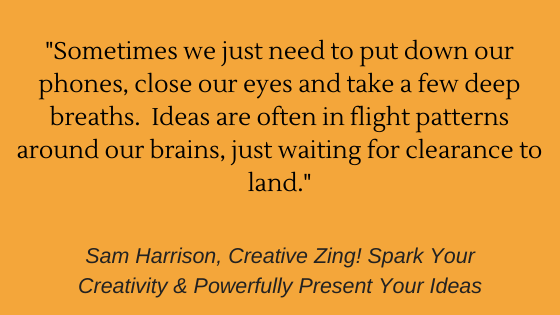How skilled are you in “Mastering the Moment”? You know, those life situations where you feel overwhelmed, albeit temporarily, by anger, despair, nervousness or confusion?
In these situations, how we choose to deal with these negative emotions can make the difference between proactive versus reactive behavior, success and failure.
The problem with “reaction” is that it happens after the event. It’s how we act when faced with an already-occurring situation and is governed by the event itself. We let the event control our behavior while we scramble just to stay afloat. Proactivity, on the other hand, allows us to face situations with some degree of confidence, with an “I’ve got this” kind of attitude. You’ve anticipated any struggles along the way and instead of running away from them, you’re able to accept them as part of the ride.
Being proactive isn’t a gift given to some and not others; there are ways that you can develop this quality and roll with the ebb and flow of the tide, instead of constantly crashing against the shore.
Here are three ways to help you
1. Foundations are key
In the same way that a tree with strong roots will weather a storm, if you have your “roots” set in a healthy foundation, you’ll find it easier to be positive when faced with a trying situation. Following a healthy routine including exercise, healthy eating and lastly, meditation will result in a calmer, more positive you. Instead of seeing your limitations, you’ll give yourself some all-important space; space that will allow you to focus on solutions, rather than being hit full-face with each problem as it arises
2. Be Self-Aware
One of the biggest aids you can gift yourself is taking time to be self-aware. When you feel the “rush” of reaction, pause. Instead of jumping straight in and letting that reaction control you, just pause and breathe.
One inhale and one exhale.
It’s all about giving yourself that space, again, to formulate your response.
Next time, you’ll find it much easier to understand not only the potential issues that might occur with any negative situation, but also understand and appreciate how this situation triggers you.
3. Practice
Understand how easy it is to take back control of any situation by practising the “power of the pause”.
Instead of letting the chain of events control you and set the agenda, by pausing, perhaps with a “leave that with me, I’ll come back to you tomorrow” response. Again, that pause is the most powerful weapon in your arsenal! By visualizing a variety of circumstances and practicing your response, you’ll never be caught on the back foot again.
If you’ve spent a lifetime in a reactionary frame of mind, changing that to a proactive mindset is not going to be an overnight thing. It’s going to take some time and effort to alter the habits of a lifetime. But rest assured that switching from reactive to proactive can be done. It’s about recognizing the power within yourself and harnessing it.
In my next blog, we will take a peek at how YOU as a person blessed with an AD/HD brain can identify specific strategies for Reactions.

